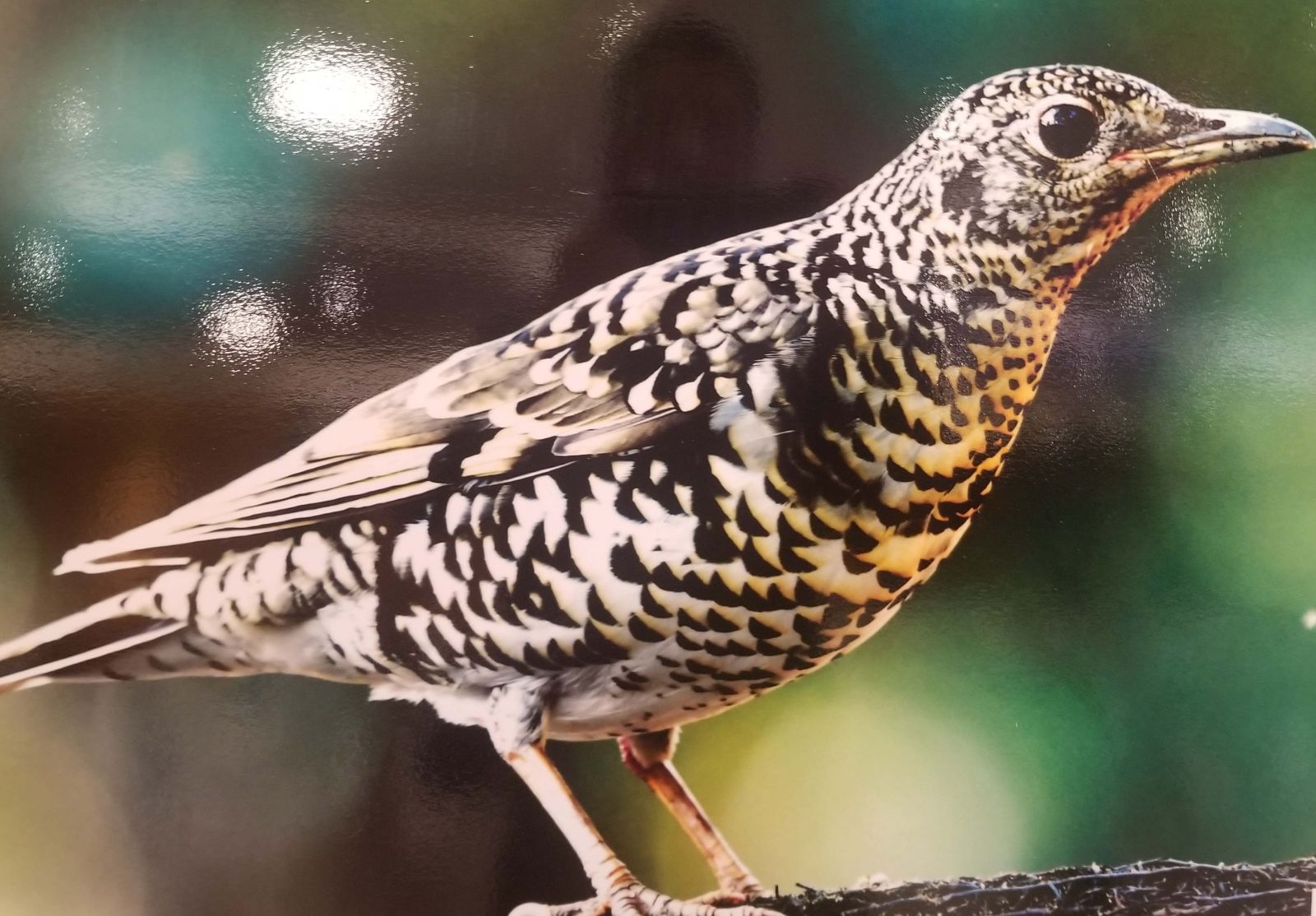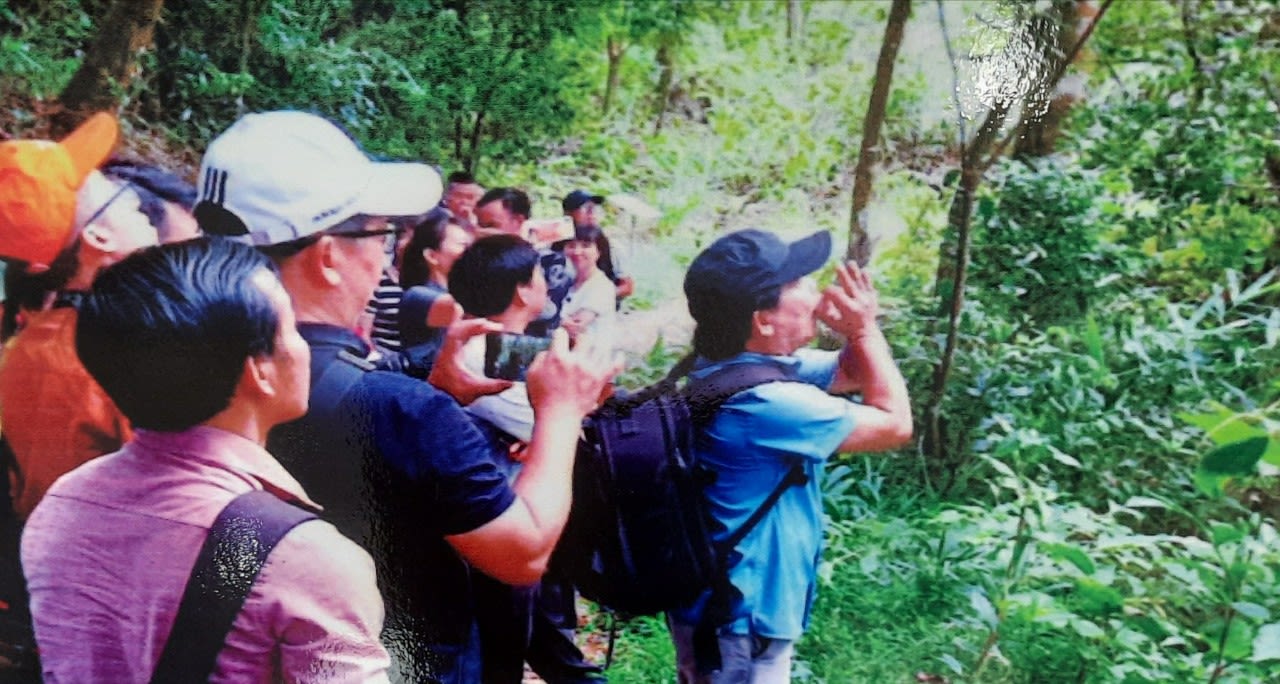Orphan birds
The forest patrol on a winter day years ago is still deep in the memory of Truong Cam, Vice-Director of the Bach Ma Environmental Education and Service Center belonging to Bach Ma National Park.

At the time, while he was taking the last look at Bach Ma National Park with a pair of binoculars before leaving after a long tiring forest patrol, he suddenly spotted a bird nest and sensed something bad was happening.
It started to rain lightly with wind howling in waves, getting stronger and stronger. He realized the onset of winter and felt so sorry for the birds; we humans felt cold, let alone chicks.
He decided to approach the bird nest and spotted three baby babblers.
It was almost 5pm. From his experience, at this time of the day, parents birds had been home to feed and protect their babies, keeping them warm.
He waited until it was almost dark; but still there was no sign of the parent birds. Cam covered the shabby nest to make it warm enough for the chicks and left the forest with his intention of coming back early the next morning.
A few hundreds of meters from the nest, Cam spotted two men in face masks looking suspicious. He asked them if they were hunting in the area. At first they rejected, but soon after that, they left the place leaving some dead birds behind. What a pity that those unfortunate birds no longer had chances to take care of their children.
As an experienced bird conservationist, Cam knew the dead birds were two females and one male and guessed the parent birds were among them. He decided to return to the nest despite the heavy rain.
He shone his flashlight into the nest but found no parent birds. He took turn whistling mimicking the parent birds, then the baby birds, but got no reply.
He couldn’t help feeling so moved for the chicks because he inclined to the view that their parents had died. Though, he still hoped they were alive and might just lose their way.
After a restless nigh, at dawn, Cam packed his things and headed back to the nest. It was pouring down with rain. The trail between mountains was slippery. He tried to go as fast as he could with the hope that the chicks were having their parents by their side. But no miracle. Things were not to his expectation.
With no choice, Cam decided to take the three young birds home to take care of and nurture them. Though he were familiar with taking care of wild birds, all of them had been mature birds. Now that he had to take the role of parent birds, Cam was really embarrassed and worried, not knowing how to start.
By reading books, searching the Internet and consulting with conservation experts, Cam learnt how to take care of chicks. Their nest must be hung on a high tree to avoid cats and rats far from the sun and wind; water was indispensable.
He made the suitable cage and hang it in a proper place. Their food was mainly worms and other insects which could be found easily in his garden. He fed them on time and kept their cage clean.
Despite his effort, the weakest of the three died. He kept the other two.
When they got mature, he made a nest in the garden for them to breed. After the first batch of chicks had grown into adult birds, he decided to release all of them into their natural environment at Bach Ma National Forest.
According to Cam, birds know how to express their gratitude. When he released them, they kept hovering over his head for a long time before flying into the forest.
Now every time he goes to the forest, he whistles to call birds. He has an impression that among those which come are birds he has taken care of.
Birds also cry
Of bird species, the motherhood of drongos makes him as well as other conservationists so touched. This bird can even sacrifice its life for their kids. When attacked by other species, drongos fight to death to protect their kids.
White pheasants will move their kids to another place if they find out someone has touched their nest.
Coucals live in pair. Once Cam saw a coucal trapped on top of a bamboo tree crying so tragically. Many other coucals including its parent birds came to its rescue but failed because its wings and legs were wounded. Right at the time, there appeared a carnivore falcon.
Luckily Cam saw the falcon. He shooed it away and took the wounded coucal home and took care of it. He treated the wound with turmeric. When the coucal recovered, he freed it into its natural environment.
In addition to “parental love”, babbles enjoy “spousal love.” This species fight to death to protect their kids. Babbles usually die in pair because when one of them is trapped, the other always comes to its rescue or to fight against other carnivore species.
Once Cam heard a female babble calling for help when it was trapped. He arrived just to see the male one was trapped too when it came to the female’s rescue.
Another time Cam saw a female waterhen dead and the male one cried every day until it lost its voice and its feathers bristled up.
Truong Cam is well known as the one who has the ability to mimic sounds of different wild birds. He knows features of different bird species very well.

The yellow-foreheaded malabar lives at the height of 800-900 meters. This bird usually builds its nest on high trees. At breeding seasons forest rangers have to patrol regularly to look for snapped branches to save chicks.
Cam and other forest inspectors at Bach Ma National Park have spotted many nests falling off snapped branches in storming seasons. The rule is they have to keep the nests intact, climb up the trees and tie them at the original places. If not, the smell of baby birds and their droppings become preys for threatening ants.
The yellow-foreheaded malabar often sings a lot in summer, but less in winter. If it sings a lot today, then we know that tomorrow will be sunny. That is the weather-forecast bird for forest inspectors.
The Bach Ma National Park has taken many measures to protect birds using visual methods. They let people listen to birds twittering and crying of parents birds or orphans chicks. Birds have their families just as humans do. They are also in pain when they lose their family members.

Listening to touching stories about wild animals and being aware of the significance of bird conservation, pupils and people living near the park never hunt or eat wild birds.
There are about 360 species of bird in Bach Ma National Park, 16-17 of which are rare species. On average, there are 3-4 patrols a year by forest inspectors to save wounded wild species or birds in danger due to rains, winds, storms or snapped branches. They have so far saved successfully 4 wounded wild birds in 2022.
Story: Hai Trieu
Photos: Truong Cam